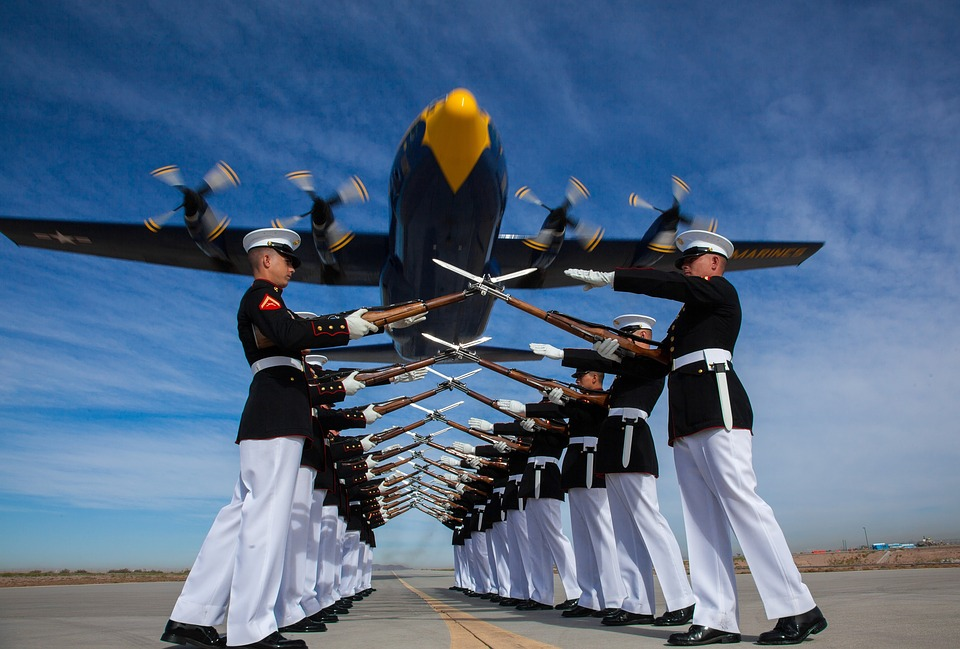
Challenge Coins: What Are They, Why Do We Use Them, And Who Are They For?
The Purpose of a Challenge Coin Traditionally used in the military to represent a service member’s belonging to their chosen branch or unit, these days, challenge coins...
The Purpose of a Challenge Coin
Traditionally used in the military to represent a service member’s belonging to their chosen branch or unit, these days, challenge coins have significance in many other arenas. The pocket-sized medallions can also be used to honor an individual for their special achievement, to commemorate a special event, or to boost group morale.
It’s easy to spot a challenge coin. Typically, each has a diameter of between 1½ and 2 inches and a thickness of about 1/10th of an inch. Their shapes and styles may vary significantly. Some diverge from the traditional coin-shape and have the shape of shields, dog tags or pentagons. Most often, challenge coins are made from nickel, pewter, or copper, while some limited-edition variations are gold-plated. The coin’s designs may be as simple as the organization’s insignia, or more elaborate with multi-dimensional cutouts.
The Challenge Coin Check
In some cases, challenge coins can be used as part of a game known as the “Challenge Coin Check."For example, someone in a military organization, or emergency service or company, may take out their coin to challenge one or more of their colleagues; whoever cannot produce their coin must buy a round of drinks for the group.
Origins of the Military Challenge Coin
Some believe that the original challenge coins can be traced back to Ancient Rome, where soldiers were given specially minted coins as a reward for their valor. According to some accounts, the coin was stamped with the soldier’s legion, encouraging them to keep their coins rather than spend them. However, this legend is up for debate and many people consider the first use of challenge coins to have taken place during the First World War.
More recent uses of military coins were seen during World War I. During that time, it was not uncommon for wealthy officers to mint bronze medallions stamped with their flying’s squadron’s insignia and give them to their brave men. According to legend, when a young ace was once shot down over Germany, the enemy soldiers stripped him of all personal belongings except for a leather pouch tied around his neck, which held his squadron medallion.
Upon escaping Germany, the pilot headed for France where he was believed to be a spy. In an attempt to escape execution, the soldier presented his medallion to prove his identity. Fortunately, a French soldier recognized the insignia and the ace’s identity was confirmed, whereupon he was returned to his squadron in the United States.
Challenge coins still capture the essence of military affiliation today. It is notable that in 2011, while touring military bases in Afghanistan, Secretary of Defense Robert Gates shook hands with many men and women in the Armed Forces. What may have appeared to an outsider as a simple gesture of respect, was, in actual fact, much more. That memorable handshake held a special surprise for each recipient; a specially minted challenge coin personalized by the Secretary of Defense himself.
Who Uses Challenge Coins?
These days, challenge coins are no longer exclusive to the armed forces, although military coins are still a common tradition. Their popularity has evolved beyond the ranks of active-duty and retired government agency personnel and now extends to many other fields.
Presidents and Politicians
Since the election of Bill Clinton, each president has had his own unique challenge coin, and since Dick Chaney, the vice president has had one too. Within each term, there are typically several presidential challenge coins, such as the ones commemorating the inauguration and the administration. There is also usually one available to the general public. However, there is only one official presidential coin, and that is perhaps the most sought-after of all.
The President of the United State may give out his personal challenge coins at his own discretion. Most presidents reserve them for military personnel, foreign dignitaries, or special occasions. For example, George W. Bush saved his for injured soldiers returning from duty in the Middle East.
First Responders
The challenge coin tradition has carried over to the emergency services and many first responder groups such as EMS, firefighters, and law enforcement agencies use them today. Each coin has a unique design and bears a special honor. They are often given out to acknowledge acts of bravery, to commemorate retirement or, to help raise funds for a good cause.
Business Personnel
Many businesses, even those which are unrelated to the military, politics, or the emergency services use challenge coins in similar ways to these groups. For example, corporate challenge coins can be decorated with a company logo to promote a certain brand, or they may be engraved with a slogan or message to the customer, to promote loyalty. They may also be given to acknowledge the members of the corporate team who have made a major contribution to the company.
Collecting Challenge Coins
Every challenge coin tells a story, not just about its recipient, but also about its maker.
Because of their tradition of excellence, challenge coins are highly sought after by collectors in many fields. In fact, it’s becoming one of the fastest-growing hobbies in the United States. Because they are custom designed, it’s easy to find a wide variety of designs, whether you wish to specialize in military challenge coins or to search further afield.
Challenge coins make wonderful gifts for colleagues, family, and friends, and you can even design and mint your own. Perhaps there’s no better way to pay respect than to pass on a challenge coin.